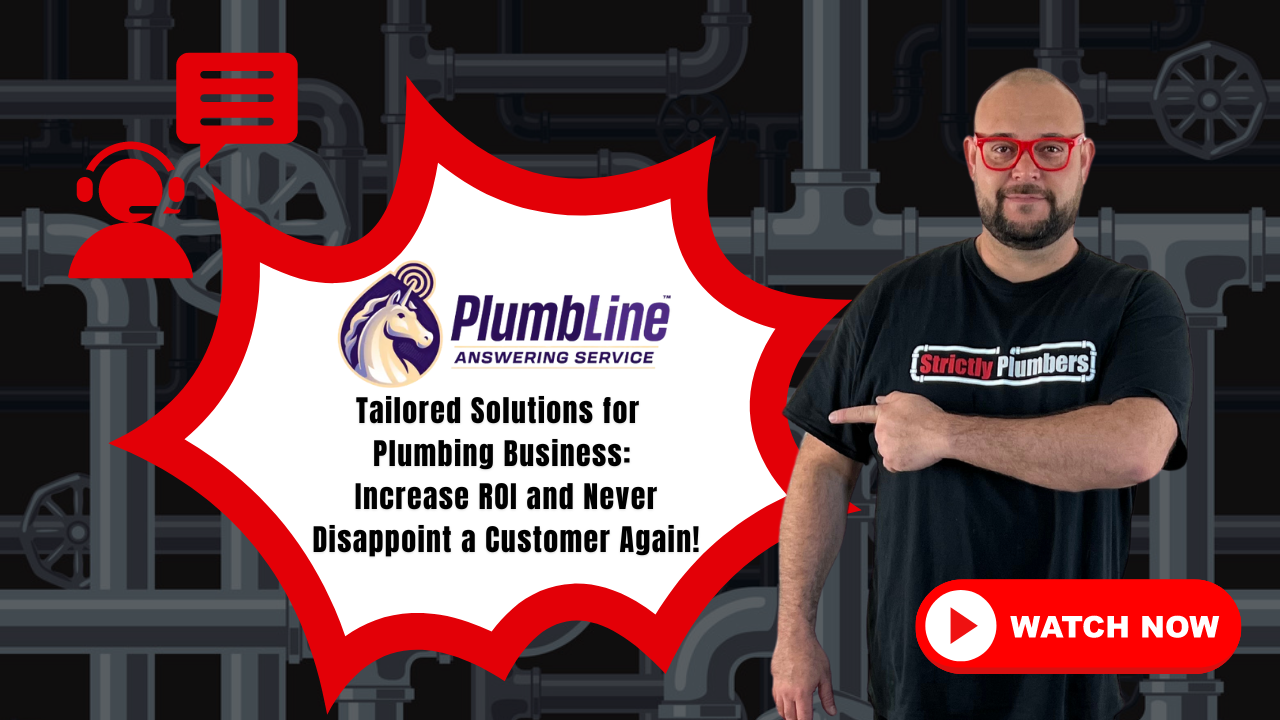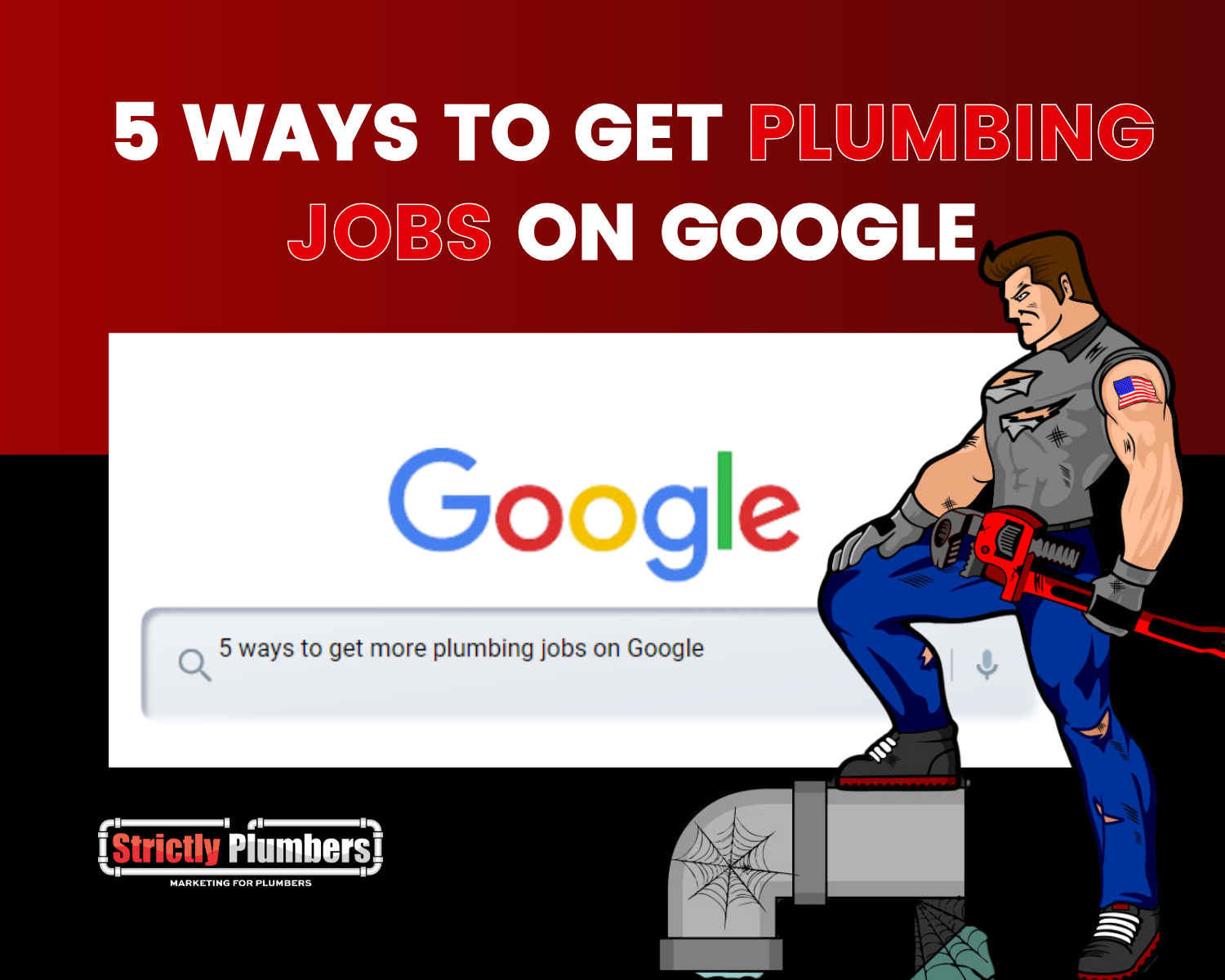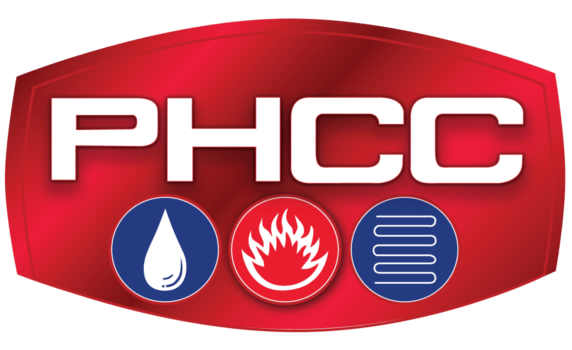A Step By Step Guide to Starting a Plumbing Business
How To Start a Plumbing Business
Starting a plumbing business can be a very lucrative opportunity. You may have heard of famous success stories of US plumbing companies, like Roto-Rooter, ARS Plumbing and more. Of course, this kind of success requires the right combination of skilled tradesmanship, dedication and business acumen. Many plumbers start their career by working as an apprentice or a contractor of another plumber. But as they grow in trade and achieve the “expert status”, it is normal to want to branch off and start a plumbing business of their own. In this article, we’ll discuss the steps you need to take to start a residential or commercial plumbing business. This is all the professional advice plumbing business owners wish they would have known when first starting out.
Step 1: Earn Your State-Required Certification and Plumbing License
The very initial first step to starting a plumbing business is to earn your required certifications and licenses. You cannot legally run a plumbing company without proper licensing and it can take two to six years to become a licensed plumber. Each state or region has specific requirements. Here is a quick breakdown on how you can become a licensed plumber:
- Serve as An Apprentice
A plumbing apprenticeship is a paid on-the-job training under a licensed or master plumber. It helps you gain experience, build your network and prepare for life on the job. Apprenticeships generally last from 2 to 5 years and are a mandatory aspect of becoming a plumber.
- Get Certified
Once you’ve completed your apprenticeship program, you are now qualified to get your own plumber license and be called Licensed Journeyman. During this stage, you can begin to accept jobs and perform plumbing tasks without any supervision. However, you first have to submit the necessary documents and pay the necessary fees required to the licensing agency in your state. You will also be required to pass the licensing exam before you become a Licensed Journeyman.
If you wish to become a licensed master plumber, you must have 1 to 5 years of documented plumbing experience, depending on the state laws. In addition, you must successfully pass an additional exam and meet the mandated state required before you are called a licensed master plumber.
If you have a high school diploma or General Education Development (GED), you can enroll in a trade school or certification program at your local college. If you are located in San Diego, consider enrolling at the PHCC Academy of San Diego. The academy offers trade certification programs for the Plumbing-Heating-Cooling Industry, including Journeyman Plumbing Apprenticeship and HVAC Service Tech Certificate. We also provide regular UPC Update classes and other industry-specific courses throughout the year.
Enrollment Requirements
To enroll in PHCC Academy of San Diego Training Programs, students must::
- Be at least 18 years of age at time of enrollment
- Pass the Math Entrance exam with a score of 70% or greater
- Pass the English Entrance exam with a score of 70% or greater
- Attend the Enrollment Interview and be granted acceptance into the program
- Pay applicable administrative fees and first two months of tuition, minimum
Most programs will generally last two years long and involve working with waste systems, water lines, plumbing fixtures and related appliances. You will also learn the working rules, plumbing codes, safety practices and various regulations surrounding the plumbing industry. General studies pertaining to math, drafting, physics and blueprint reading will also be covered. These vocational training programs will help you gain the necessary skills and stand out to consumers as a trustworthy professional.
- Get Your Contractor’s License
To become a legal plumbing contractor, you’ll need to apply for a contractor’s license. Holding a contractor’s license allows you to put up a plumbing business, bid on projects, hire licensed plumbers and apply for the necessary permits for projects. In addition to your plumber’s licenses, several states require plumbing contractors to obtain a generic contractor’s licenses. A contractor's license can be issued to individual plumbers or business entities depending on the state. License application requirements vary by state, but contractors are generally required to submit the following:
- Licensed plumber information
- Application fee
- List of officers or members
- Surety bond
- Worker’s compensation insurance information
- General Liability Insurance
Step 2: Create a Business Plan
Every successful business starts with a plan. A clear plan will help you map out the specifics of your plumbing business and discover the unknowns. The Small Business Alliance offers you a step by step guide on how to draw up a business plan. Ideally, the plan should list out the following:
a) Business Name
Choosing the right business is essential and challenging. If you are stuck, you can just stick to your name (if it is easy to look up), or choose an adjective that sets you apart from the competition, for example, Amazing Plumbing & Heating, Modern Plumbing and Rooter etc. If you operate a sole proprietorship , you might want to choose a business name other than your own name.
b) Your startup and ongoing cost
The costs involved in setting up a plumbing business are minimal. Some of the initial costs expenses include:
- A service truck, you can go for a used vehicle or purchase a brand new one.
- $1000-$4000 on a website
- $500-$1000 on the uniforms and business cards
- $2000 on office equipment
Plumbing equipment can add up quickly, like assorted pipes and fittings, pipe wrenches, extension cords, cast iron pipe cutter, propane torch, circular saw, cordless screw gun, whole hog right angle drill, drain cleaning machines, sewer camera, jackhammer, etc.
The ongoing expenses in your plumbing business may include office expenses, insurance, vehicle maintenance and the replacement/ maintenance of tools.
c) Target Market
Decide the areas you will serve and do a quick analysis to ensure there is a need for plumbers. Find out what types of plumbing are needed and who your competitors are. Don’t forget to assess the demographics (lifestyle, age, building type and average income) of your area. You may uncover some good business insights.
d) How Much You’ll Charge Customers
You can choose to charge an hourly rate or a flat rate. However, the average price for plumbing services tends to range between $160 and $430 for a typical job. This works out to an average hourly rate of between $45 and $150.
e) What Are Your Business Goals?
If you want your plumbing business to last, you need to have a goal. Do you want to specialize in higher-grossing specialties, such as new construction projects or sewer relining? Do you want to hire a team and expand your operations to new regions? Do you want to remain independent and have more freedom to take a vacation when you want? Take to come up with achievable goals, write them down and hold yourself accountable.
Step 3: Form a Business Entity
Creating a legal business entity is very important. You should sort this out from the start, so there are no crossed lines with your professional and personal accounts. The most common types of business structures include:
a) Sole Proprietorship
A sole proprietorship is an informal, unincorporated business entity that is NOT legally separated from its owner. That means, profit and losses are reported on the individual’s tax return and the business owner is personally liable for all debts and risks. For this reason, sole proprietorships are not usually the best option for most small business owners.
b) Partnership
A partnership is a business owned by more than one person, which is not formally organized. The owners are responsible for filing taxes under the name of the partnership and are responsible for any actions taken against the business. Just like a sole proprietorship, your personal assets are not protected in the event your plumbing business is sued.
c) Limited Liability Company (LLC)
A Limited Liability Company is a United States business structure that provides the personal liability protection of a corporation with pass-through taxation of a sole proprietorship or partnership. Forming an LLC is the easiest way of structuring your plumbing business to protect your personal assets in the event your business is sued. An LLC can be owned by one or more people, who are known as LLC members. An LLC with one owner is called a Single-Member LLC, while an LLC with more than one member is called a multi-member LLC.
d) Corporation
A corporation is a legal business entity that is shared by shareholders and is run by a board of directors. Corporations are created through registration with the state. Although they provide numerous tax benefits and limited liability, they are still required to follow more complex operating procedures than their counterpart, the Limited Liability Company (LLCs). It is advisable to contact a local attorney or a local mentor in the plumbing industry for guidance, so you can be sure that everything is properly documented.
Step 3: Register for Taxes
Once you have created your legal entity, you will need to register for an Employer Identification Number (EIN) on its behalf. An EIN is a unique nine-digit number assigned by the IRS to business entities operating in the United States. It is your permanent identification number and can be used immediately for most of your business needs. You can acquire your EIN for free via the IRS website, by mail or via mail. Note that depending on the legal entity you choose, you might have varied choices on how your plumbing business will be taxed.
You will need an EIN when:
- Applying for business licenses
- Opening bank accounts
- Taking out business loans
- Forming Corporations and LLCs
- Filing tax returns
- Building business credit
- Hiring employees
Once an EIN is issued by the IRS, it is permanent and does not expire. It stays for the life of the business until the ownership or structure changes, or other exceptional circumstances.
Step 5: Open a Business Bank Account and Get a Biz Credit Card
Opening a business bank account is one of the most important things you can do when starting a plumbing company. A business bank account plays a vital role in growing your plumbing business, while protecting it and yourself at the same time. It allows you to keep track of business expenses, simplify tax reporting, and deposit payments under your company name.
You should have a business bank account as soon as your plumbing business has an EIN or begins to accept and make payments. The reason is because the IRS requires any incorporated business to have a business bank account. The rule applies whether the business is structured as a corporation, Limited Liability Company (LLC), a partnership or a sole proprietorship. A sole proprietorship is not legally required to open a business bank account, but you should get one anyway.
Before heading to the bank to open a business account, make sure you have all the necessary documents. Depending on the structure of your plumbing business, you won’t need all of the documents listed below, but this list should give you a starting point:
- Employer Identification Number (EIN)
- Articles of organization or incorporation
- Certificate of good standing: Your bank may require you to provide a certificate of good standing, issued by your state, showing you are up to date on taxes and other requirements.
- Personal Identification
- Copy of your DBA filed with the state
- Copy of partnership agreement
Step 6: Acquire the Necessary Permits
Most cities and counties and some states require businesses to obtain a permit before performing plumbing installations, repairs, replacement or alterations. Minor repairs, however, are exempted from permitting requirements. Failure to obtain necessary permits can result in hefty fines, or even cause your business to be shut down. In most states, it is necessary to obtain a plumbing contractor’s license, a plumbing permit, and/or a plumbing license. Certain other state permits and licenses may be needed to operate a plumbing company.
Step 7: Get Business Insurance
As a plumbing business owner you’ll be exposed to a whole host of risks that you wouldn’t have had whilst on wages. There’s the risk that you damage someone else’s property, or worse, that you cause personal injury to another person. These risks are so great that most states require that licensed plumbers hold mandatory insurance in place to cover such risks. This type of policy is known as liability insurance.
It’s the most common form of insurance for any trade business, not just plumbers. It will cover you in the event that you cause property damage or personal injury to a third party as a result of negligence. Another notable insurance policy that many businesses need is Workers’ Compensation Insurance. If your business will have employees, it’s a good chance that your state will require you to carry Workers' Compensation Coverage.
Step 8: Bring Your Brand to Life
A few steps back, you gave your plumbing business a name, and now it is time to bring that brand to life. Your brand is what your company stands for, as well as how your business is perceived by the public. Having a strong brand will help your plumbing company to stand out from the competition.
Before you begin designing your logo and other visual aspects, first identify your brand's vision, mission and core value. As a service-based business, it is advisable to start with values, such as integrity, transparency and honesty. Try coming up with at least five values that will guide you in everything you do.
Next, think about the various visuals that will represent your brand. A graphic designer or brand specialist can help you make the correct choices. However, it is recommended that you have a general idea of what you need before you get started.
Do you want your professionalism to be the focus of your brand? Maybe you’d like your brand to be more representative of hard work and strength. All of these aspects will be tied together in your logo, which you’ll use on your website, your truck and any branded material. No matter what look you go with, remember to keep your core values at the center of everything that you do in your small business.
Step 10: Market Your Services
The best way to get customers is by promoting your new plumbing business. There are many ways you can market your service to reach your target audience. Here are some of the proven marketing techniques for a new plumbing company:
- Referral Marketing
Trust is everything, when it comes to any service-based business. Referral marketing is one the best ways you can build trust. If you have a lot of experience in the plumbing field then you should have contacts in the industry. Build a reputation if you have worked under master plumbers and market your experience. You can also consider partnering with businesses that share a clientele with you. Your partners could be plumbers with different specializations or they could even be general contractors, electricians, property managers and the like. Basically, you should give your partners a bonus, every time they send you a new customer.
- Local SEO
SEO is what enables your plumbing company to be found online by the people who are looking for your services. SEO is the art of optimizing your website for specific keywords that your customers are searching on search engines. Unlike other forms of digital marketing, SEO will not yield immediate results. Plumbers must earn the trust of Google over time by establishing a well-rounded web presence. That’s where Strictly Plumbers Inc. comes. We make all the complicated SEO stuff easy to understand and keep it simple for you. Hire us and we make it happen, no need to stress.
- Plumber Website
As a plumbing business owner, having an effective website is essential to standing out of your potential customers. Your plumber website is often the first impression of your company. What’s more is that 94% of the factors that impact that first impression are related to your website’s design. If someone likes the design and functionality of your website, they are more likely to stick around longer and potentially become a customer. Your website’s design could also determine how many leads and customers you get from your plumber website. Give us a call or browse our website to learn more about our Plumber Website Design plans.
- Google Ads
Google AdWords, commonly known as Google Ads can be highly effective when it comes to getting new leads for your plumbing business. Creating a successful Google Ads campaign starts with following Google’s criteria for advertisement, as well as, targeting the right keywords and demographics. If the campaign is conducted without an effective strategy and proper oversight, your plumbing company can be exposed to major losses, at worst, a weak ROI at best. That’s why it is advisable to hire a professional Google Ads specialist, such as Strictly Plumbers. Click here to learn more about Google Ads for Plumbers.
Step 11: Hire a Good Dispatcher
Your dispatchers are critical to keeping your plumbing business running its best. Your company’s dispatcher plays an important role when it comes to keeping your plumbers performing at a high level and delivering awesome customer service on everything from emergency class to sales opportunities.
Thus, it is essential to make sure that you have the right dispatchers for your plumbing business. Whether your company relies on dedicated dispatchers or combines CSRs and dispatchers into one position, the people working in those roles should have the right skill set and temperament. Tony Gee knows the best strategies that make a successful plumbing dispatcher. Click Here for Free Dispatcher Training.
Step 12: Invest in Sales training
Sales training involves learning how to upsell and how to provide value and create loyal customers. The mistake many plumbing companies make is to quickly up-sell products to customers who may not need those products, rather than focusing on providing a professional experience. Our sales training for plumbers and employees equips you with a professional sales process to maximize your selling opportunities and increase your weekly revenue. Click Here for a free sales training. The trainer in this video is Tony Gee. Tony was a plumber for 15 years prior to studying marketing. He is the owner and founder of Strictly Plumbers Inc., which has about 20 staff and has helped approximately 240 plumbing business owners throughout the United States.
Tony Gee certainly knows what it takes to run a plumbing shop generating 1 million per month! And because he is so passionate about seeing small to medium plumbing businesses grow, he is sharing valuable tips you need to know to start making money with your new plumbing company.
Step 13: Hire more plumbers
Hiring the right plumbers is one of the most important and also painful parts of managing a plumbing business. Talented, experienced plumbers are becoming harder to find. However, with some planning and forward thinking, you can still find the best plumbers for your team. Our Plumbing Hiring Test can help you build an awesome team and take your plumbing business to the next level.
Once you have hired the right plumber, you need to train them to get bigger sales. Tony Gee can teach your plumbers how to esthetically turn a small plumbing job into a large plumbing to generate bigger invoices, even if your plumbers don’t have good sales skills. Tony has trained thousands of plumbers on sales training and has also given sales training presentations for plumbers for PHCC. Tony Gee is an affiliate of PHCC of San Diego. Click Here for Free Sales Training. Schedule an Appointment With Tony Today.
Step 14: Manage your company
One of the hallmarks of any successful plumbing company is often the presence of a “Good Management System”. A good management system benefits every aspect of your plumbing company, including the executive, plumbers and customers. Rather than hiring more people to handle the different tasks of your business, you can boost your productivity with custom-built software. We recommend you choose the following software for your plumbing company:
- SkyBoss
SkyBoss is a cloud-based, mobile software that is specifically designed to streamline your plumbing business. This software has all the tools you need to take your plumbing business to new levels of performance and revenue. Its primary features include customizable price book, inventory management, plumber tracking and routing, task management, customer tracking, work orders, estimating, reporting, customer tracking, work orders and invoicing, as well as scheduling and dispatch. Click here to learn more and Schedule a Free Demo with SkyBoss.
- Service Titan
If you’re looking to grow your plumbing company and increase revenue, then you should invest in Service Titan. It is a cloud based platform that helps plumbing business owners handle all aspects of field service management, from scheduling to invoicing to sales. Service Titan has a particularly strong sales feature that allows plumbers in the field to make presentations to customers and close on the spot. This software is also ideal for dispatchers who have to handle a lot of calls and need more detailed information on customers right away rather than having to pull it out during the phone call.
We’re Here to Help
Starting your plumbing business can be one of the best decisions you will ever make, but also one of the most challenging. Thankfully, you’re not alone. If you need help getting more plumbing leads, the pros at Strictly Plumbers can helpStrictly Plumbers Inc. is the ONLY plumbing marketing company started by a master plumber, and we have been helping plumbing owners like you grow their business and increase revenue. After 15 years as a master plumber in San Diego, working for the most reputable companies in the industry, Tony Gee decided to pursue his passion for online marketing for plumbing owners. Click Here to schedule an appointment with Tony



Prefer To Talk To Someone Over The Phone? Click The Button Now



